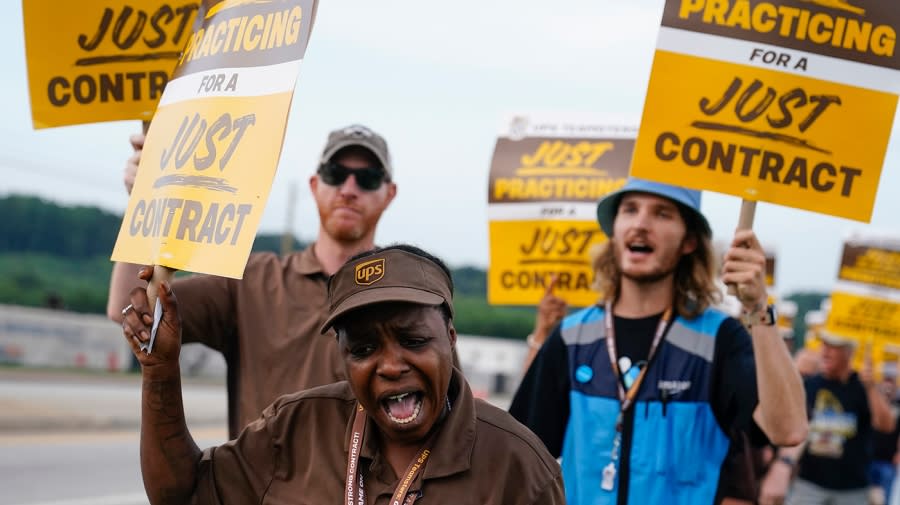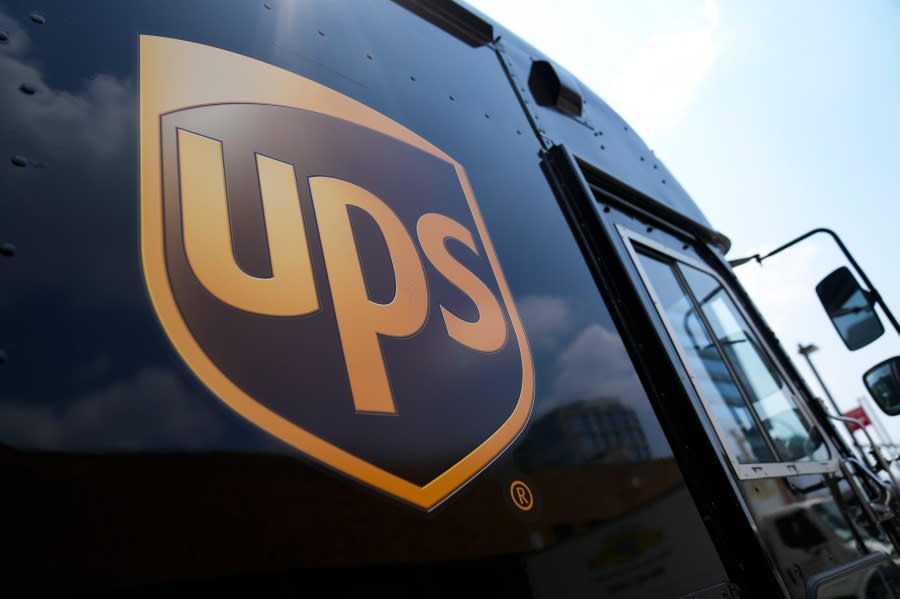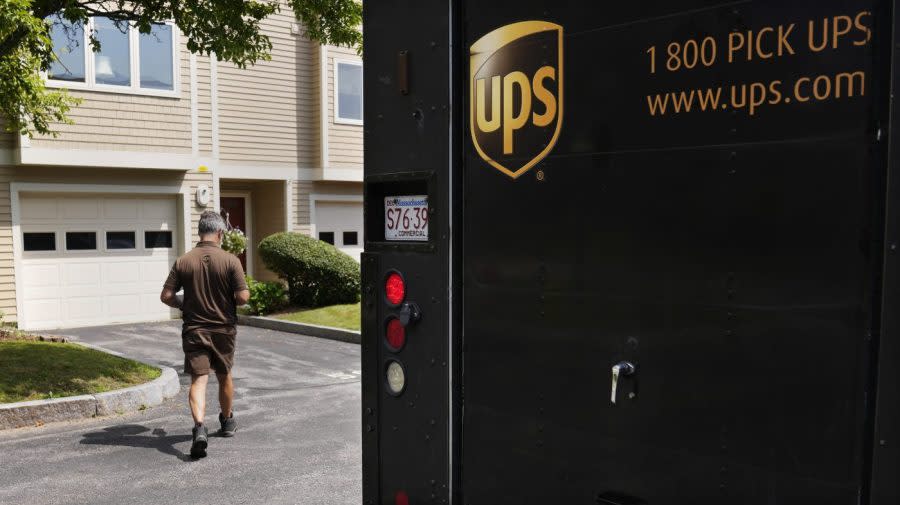5 things to know about the UPS Teamsters talks as strike deadline nears
The pressure is on for UPS and the International Brotherhood of Teamsters as they return to the bargaining table this week to negotiate a new contract, just one week before their current contract is set to lapse.
Negotiations are set to pick back up Tuesday after they fell apart earlier this month as both sides struggled to reach a consensus over the portion of the new contract dealing with wages.
What do the Teamsters want?
With more than 300,000 Teamsters-represented employees at the delivery giant, UPS regards itself as the country’s “single-largest employer” of the union members.
The company’s current contract with the Teamsters, which was agreed to five years ago, is set to lapse next Monday. The union has called the agreement the biggest private-sector union contract in the country.
The union has previously lauded some “major gains” in talks, as both sides have cleared a list of “non-economic” issues since talks began months back.
The concessions UPS has made so far include heat-mitigation efforts, like agreeing to air conditioning in certain newly purchased trucks in hotter areas beginning next year and making Martin Luther King Jr. Day a paid day off.
The union also announced a tentative agreement on doing away with a “two-tier wage system” opposed by members, and “ending forced overtime on drivers’ days off.”

What are the sticking points in a UPS Teamsters contract?
But despite the progress made in talks, there is still much more work to be done for both sides to find common ground on what they call the “economic portion” of the contract, which covers pay and benefits.
“I want to see them reward their people. I want to see them give them their biggest raises increase they’ve ever had because they’ve made the biggest profits they’ve ever had,” Teamsters president Sean O’Brien told The Hill earlier this month.
A spokesperson for the company said Monday also said the “union has most recently been focused on pay for part-time UPS employees,” as contract negotiations are slated to resume this week.
UPS set company records for profits in each of the past two years as millions of Americans and generous federal pandemic aid powered an online shopping boom. And the union wants its workers to see a bigger piece of those profits.
What does UPS say about Teamster talks?
UPS said Monday it remains focused “on reaching a tentative agreement” in the days ahead.
“With the contract expiration less than two weeks away, we need to work quickly to finalize a fair deal that provides certainty for our customers, our employees and businesses across the country,” a spokesperson said.
“We started these negotiations prepared to increase the already industry-leading pay and benefits we provide our full and part-time union employees and are committed to reaching an agreement that will do just that,” they added.
But concerns are rising over the threat of a looming strike and what it could mean for packages.
The company said last week that it would begin training nonunion workers to prepare for the possible outcome of a strike in a move that prompted blowback from the union.
“What an insult this is to the hardworking men and women who do backbreaking work every day to make this company $100 billion a year. The full-time drivers, and the part-time workers making poverty wages, deserve better from this company,” a representative told The Hill at the time.

When is the deadline for a UPS Teamsters contract?
The Teamsters have warned that thousands of workers at UPS are prepared to strike if both sides fail to reach a deal on wages and other economic issues soon.
Jonathan Gold, vice president of supply chain and customs policy at the National Retail Federation, told The Hill in a previous interview that a UPS Teamsters strike could produce a significant disruption.
UPS, which averaged delivering more than 24 million packages daily last year, has said it transports about 6 percent of the nation’s gross domestic product (GDP) on a daily basis and more than 3 percent of the global GDP.
“It’s not as if you can just quickly turn to another company. The question is what capacity is available to make that shift,” Gold said. “And it’s unclear if there’s capacity elsewhere to make up for that.”
“You’d have supply chain disruption like we witnessed during the pandemic potentially, where you won’t be getting your deliveries,” he also said. “So, those who are relying on next day, two-day delivery of whatever you buy online or somewhere else, potentially cannot be delivered.”
Earlier this month, FedEx also encouraged shippers “considering shifting volume to FedEx” to “begin shipping” with the company now in efforts to protect “capacity and service for existing customers” in the event of disruptions.

Labor is having a major summer
The heated negotiations between UPS and the Teamsters are echoing multiple labor disputes across several business sectors, including the film industry and at aviation companies.
Last week, flight attendants with American Airlines, among the world’s largest airlines, garnered headlines after their union announced they would be holding a strike vote in the coming days.
Experts also have their eyes on the threat of a potential United Auto Workers strike.
“Since the pandemic, supply chain issues have clearly become more salient to decision makers, and disruptions have also become more widely reported on,” Barthélémy Bonadio, assistant economics professor at New York University Abu Dhabi, told The Hill in an interview last month.
“Maybe this extra attention can be a factor encouraging organized labor to adopt a harder line as they can get politicians’ and media’s attention more easily,” he said.
For the latest news, weather, sports, and streaming video, head to The Hill.

